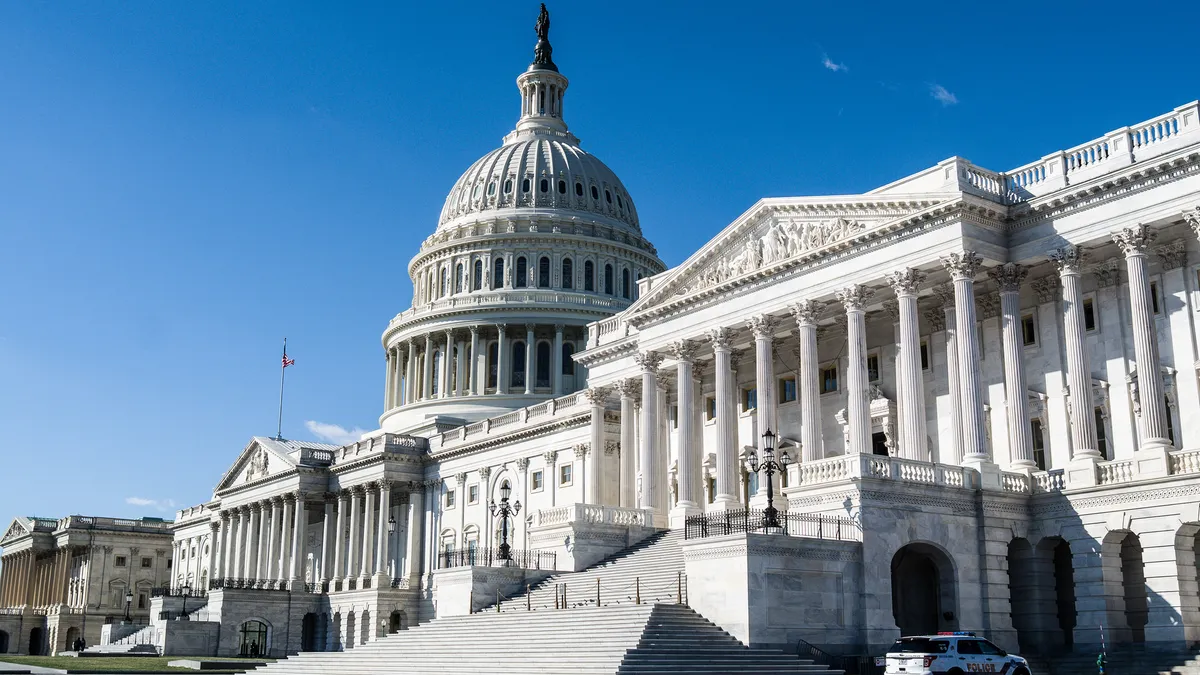After a period of declining COVID-19 case and death rates between September and October, the U.S. is experiencing increases of both, according to data from the Centers for Disease Control and Prevention.
The upward trend is especially acute for cases. On Sept. 12, the nation's seven-day moving average of new cases was 34,371, comparable to late June. But by Nov. 11, the seven-day average climbed to 121,496, the highest on record.
Against that backdrop, a federal law meant to address the needs of employees during the pandemic, the Families First Coronavirus Response Act, is set to expire Dec. 31 — fewer than 50 days away. The law provides workers at certain businesses with fewer than 500 employees two buckets of paid leave, one for paid sick leave and one for emergency family and medical leave.
In addition to providing workers flexibility, the law may also be effective in preventing COVID-19's spread, according to a research paper published in the December 2020 issue of Health Affairs. The paper's authors found that states where workers gained access to paid sick leave via the FFCRA saw a "statistically significant" 400 fewer confirmed cases of COVID-19 per day, or roughly one prevented case per day per 1,300 workers.
An extension of the FFCRA's leave provisions has been proposed in Congress via the U.S. Health and Economic Recovery Omnibus Emergency Solutions Act, or HEROES Act. The House of Representatives passed the bill in May, largely along partisan lines, but the U.S. Senate has not yet taken up the legislation. The bill would extend the FFCRA's leave provisions through the end of 2021.
What employers can do with or without an extension
Although congressional Republicans and Democrats may be negotiating an extension of the FFCRA's leave provisions, "we don't know what the details would be," said Susan Harthill, partner at Morgan Lewis.
Others view the chances of an extension as murky at best. "The House and Senate remain at an impasse, so it is difficult to predict if any extension to FFCRA or unemployment insurance benefits will occur before Dec. 31," said Jim Paretti, shareholder at Littler Mendelson's Workplace Policy Institute, in an email.
Regardless of the outcome, employers can take steps to prepare. Philip Voluck, managing partner at Kaufman Dolowich Voluck, said he is advising clients to "prepare for what happens right now."
"As far as I can see, the chances of extending [the FFCRA] are very great," he said. "The first time this was passed, back in April, it was largely a bipartisan product … you would hope that that carries over enough that the government can get this done."
Voluck said he has advised employers not subject to the FFCRA to consider adopting some of its provisions, so long as it would not cause harm to the business. He also said that employers largely have not encountered difficulties implementing the emergency leave, but the question of employee eligibility is the most common query.
Employers are also taking efforts to comply with various state and local paid leave laws, Harthill said; "It's a challenge for multi-jurisdiction employers to comply with a patchwork of laws that's evolving." The pandemic has pushed paid leave into the forefront of the national conversation, she added.
As for what's on the horizon, Voluck said congressional lawmakers may decide to pass paid leave legislation that is "more stringent" than the FFCRA, including broader definitions of terms such as "employee" and "healthcare provider." The U.S. Department of Labor has already issued revisions to its definition of the latter phrase in response to an August court ruling. But a new piece of legislation, or an FFCRA extension, could also include expanded payroll tax credits for employers, Voluck noted; "I would expect those to continue [and] perhaps even increase."
In his conversations with employers, Voluck said he heard the FFCRA has been most helpful in assisting working mothers and those with childcare responsibilities. Access to the leave has also helped to ease anxiety around workplace spread of COVID-19. Employers, Voluck added, are "eager to make certain that if there is an exposure, it's limited."















